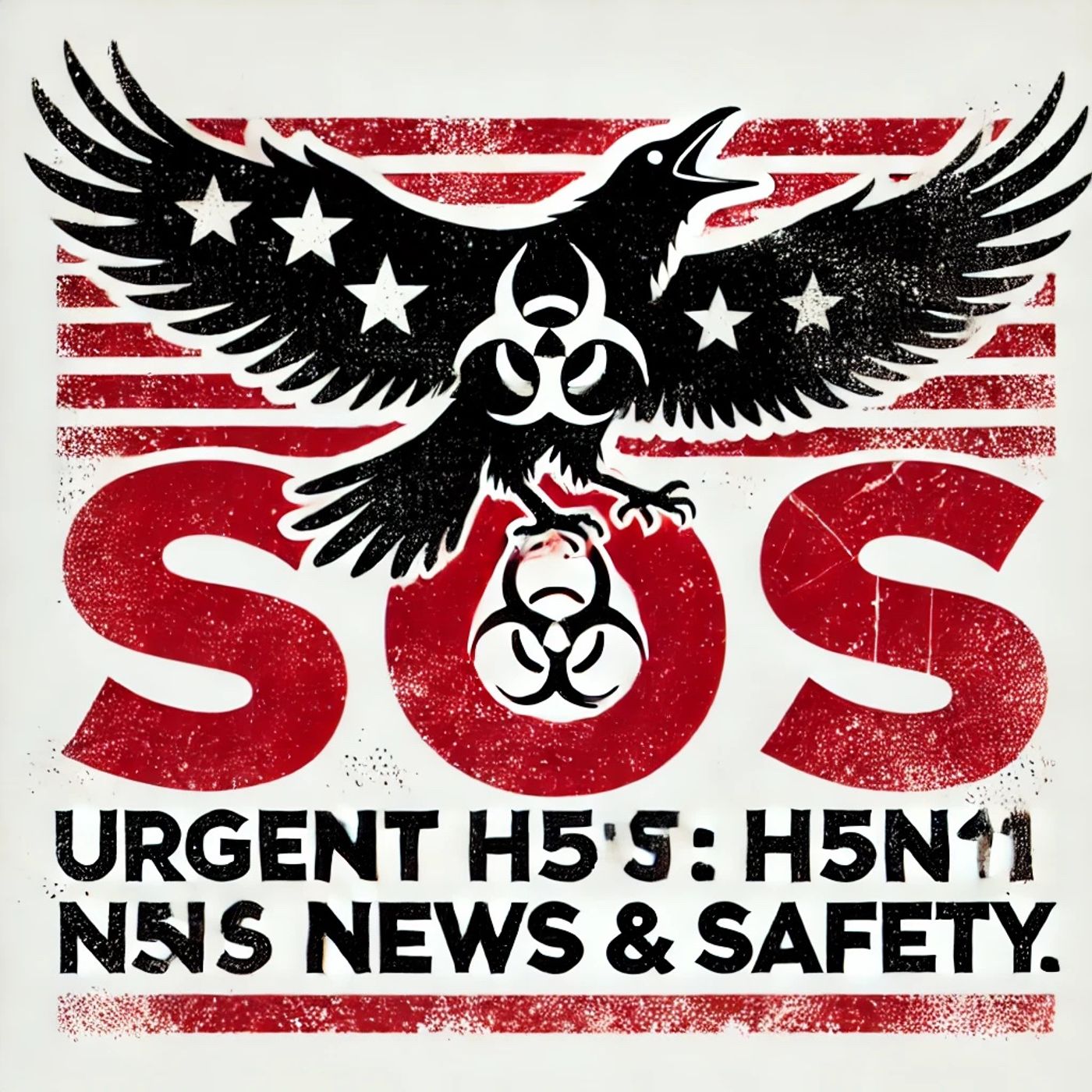Podcast Episode Details
Back to Podcast Episodes
H5N1 Bird Flu Spreads Across US Dairy Herds: California Reinfections and Colorado Outbreak Raise Urgent Concerns
This is Bird Flu SOS: Urgent H5N1 News & Safety. I’m your host, and today’s episode brings a critical update on the H5N1 bird flu crisis gripping the United States, especially our agricultural heartland.
On August 1st, California health officials confirmed 43 new cases of H5N1 bird flu in dairy herds that had previously tested negative and been released from quarantine. According to the California Department of Food and Agriculture, these reinfections happened in dairies already hit earlier this year, marking an unprecedented return of the virus and prompting immediate state-mandated quarantines. All poultry and dairy cattle exhibitions in California remain banned, alongside regular surveillance at all dairies.
By late July, Weld County, Colorado, had become the epicenter of a multi-species H5N1 outbreak in the country. Reports indicate outbreaks among poultry, dairy herds, and even companion animals, with at least ten human farmworker cases in and around the county. Research conducted there has revealed the troubling ability of H5N1 to spread quickly between cows, people, birds, cats, and even wildlife like raccoons. Critically, cows can carry and shed the virus without any symptoms, fueling invisible transmission among herds and workers.
Dr. Mike Johnson, senior official at the CDC, offered this sober assessment: “While the current public health risk remains low for the general population, the potential for H5N1 to mutate and spread more easily among humans is a significant concern. We are working closely with states to monitor human exposures and enhance diagnostic surveillance.”
The World Health Organization echoed these warnings, noting: “Though H5N1 does not currently transmit easily between people, the ongoing outbreaks in poultry and dairy have the potential to change the risk landscape at any time. Continued vigilance is essential to protect both animals and humans.”
Here are the immediate action steps for those in or near affected areas:
- Report any sudden sickness or death among livestock or poultry to your state agriculture department right away.
- Avoid direct contact with sick or dead animals and wear gloves, face masks, and eye protection if exposure cannot be avoided.
- Farmworkers should strictly follow biosecurity guidelines, wash hands thoroughly, disinfect boots and equipment, and avoid bringing farm shoes or clothing home.
- Do not consume unpasteurized milk or undercooked eggs and poultry from affected regions.
- If you have direct contact with sick or dead animals and develop symptoms like fever, cough, difficulty breathing, or eye irritation, seek prompt medical attention and inform your provider about the exposure.
For emergencies involving livestock, call the animal disease hotline at 1-866-922-2473. If you suspect human illness tied to H5N1 exposure, contact your health department or call 911 for severe symptoms.
It’s important to stay informed but not alarmed. The CDC and USDA continue to monitor, test, and respond aggressively to new cases. We urge all listeners to rely on official sources for updates and to act swiftly if you notice suspicious symptoms in yourself or your livestock.
Thank you for tuning in to Bird Flu SOS: Urgent H5N1 News & Safety. Come back next week for more crucial updates. This has been a Quiet Please production. For more, check out Quiet Please Dot A I.
For more http://www.quietplease.ai
Get the best deals https://amzn.to/3ODvOta
Published on 2 weeks, 1 day ago